Pregnant In Korea: The Superstitions, The Benefits, & So Much More!
Last Updated on October 17, 2023
When I found out I was pregnant, the feelings of excitement, joy and of course some nerves washed over me. Being pregnant in Korea can have so many benefits and great things, but being a foreigner who is pregnant abroad can bring with it a whole new set of questions aside from the standards.
What are the benefits of giving birth in Korea? What are the Korean pregnancy superstitions I should know? Where can I buy maternity clothing that fits me? When I was pregnant there weren’t any guides for being pregnant in Korea online to check out or much info in English at all about doctors and centers.
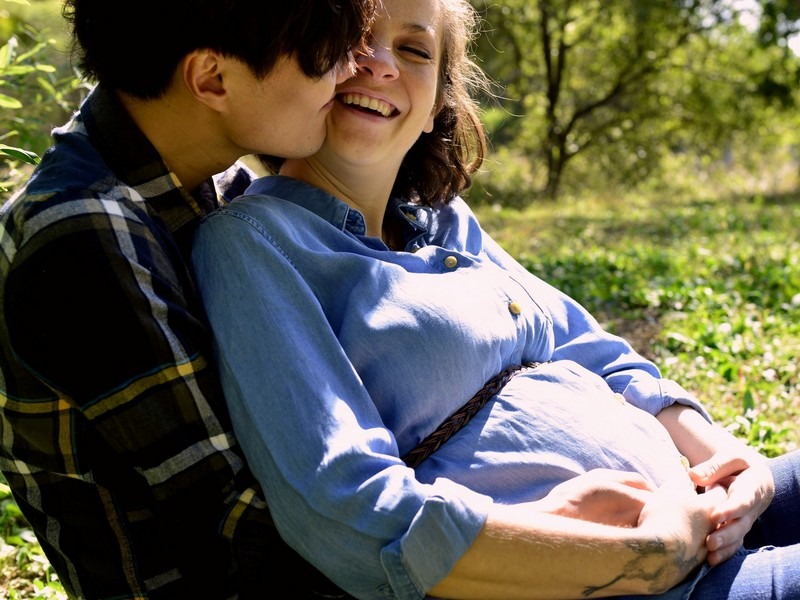
My expectations for pregnancy came from movies and growing up and hearing stories. The stories were more about my grandmother rushing to the hospital and getting pulled over by a police officer at 2 in the morning and other equally amusing things though and not at all about what giving birth or the preparation actually entailed. All of the stories were from people who had been in Dayton, Ohio though and getting pregnant in Korea or anywhere else for that matter can be quite different.
From Korean cultural norms to expectations and how one would prepare, so many things, we discovered, prompted a conversation rather than an easy “yes” or “no” response. Here are some things to expect, if you get pregnant and decide to have a baby in Korea.
There’s a lot of info here so I’ll make it easy for you to skip down to a particular section should you be interested in just one thing. Here is the info to check out in this post:
- Where To Find A Pregnancy Test In Korea
- Benefits Of Giving Birth In Korea
- Where To Buy Maternity Clothes In Korea
- Should I Tell My Korean Employer I Am Pregnant?
- What’s Your Baby’s Nickname?
- You Can Change Doctors many… many times.
- Enforcing English During Doctors Visits
- Korean Medical Terms & Jargon To Use When Pregnant
- Ultrasounds Galore
- People Won’t Rub My Belly
- No Lamaze Classes
- Korean Superstitions About Pregnancy
- Exercising While Pregnant
(This post contains affiliate links, which means I receive a certain percentage of a sale if you purchase after clicking at no cost to you. Thank you for your support.)
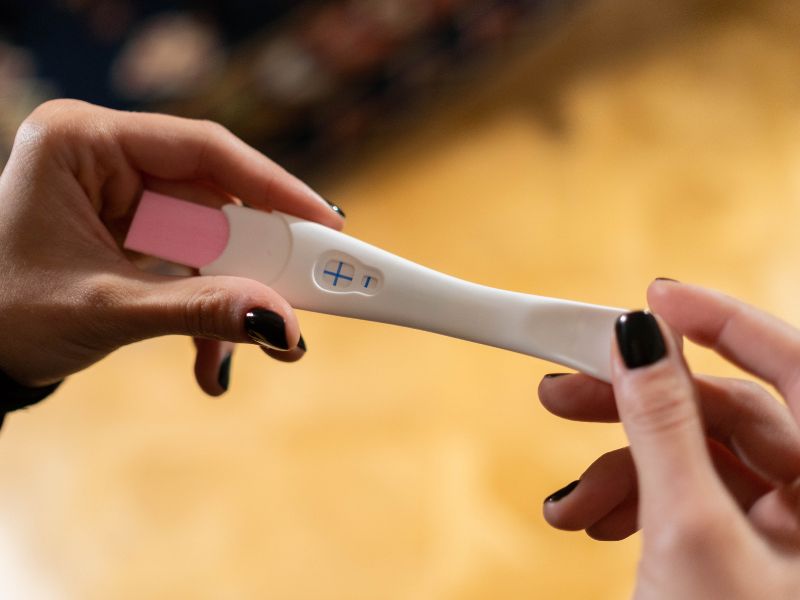
Where To Find A Pregnancy Test In Korea
Pregnancy tests can be found easily at any pharmacy in Korea. In my case, not really knowing what to ask for, I said “imsin test (임신 테스트) juseyo (주세요)” meaning “pregnancy test please” and got the test no problem. Just walk in and ask and you’ll be good to go.
Pharmacies can be found easily as well with at least one on every block from my experience. Don’t be nervous to ask. If you don’t ask, you’ll never know and it’s always better to know something rather than not know it.
Benefits Of Giving Birth In Korea
The National Happiness Card: Financial Assistance For All Expecting Mothers
Because the birth rate is so low in Korea, the government is trying very hard to make it easier for families in any way that they can and one way that they are doing that is by providing some financial assistance. The National Happiness Card (국민행복카드) is offered to all pregnant women, foreign and Korean alike, as long as they’re paying into the National Health Insurance system.
The card is worth W500,000 (or more! Ask at your hospital/bank for the exact amount as it changes from year to year) and can be used at any hospital or clinic for pregnancy related visits.
For more information, check out my post on how to get the National Happiness Card here.
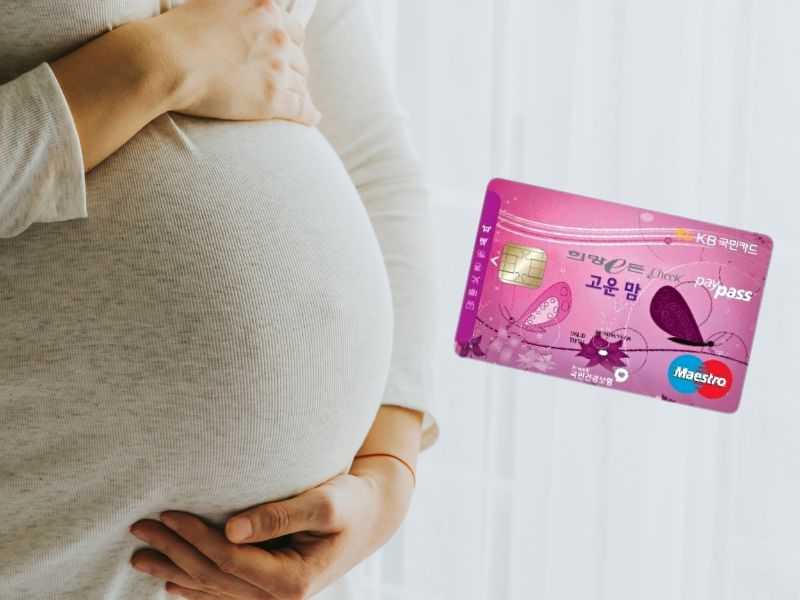
Community Healthcare Centers & Free Services
I hadn’t even known about our community healthcare center until just a week before I was due, but you should definitely head to yours early to see everything that they offer. Every district (gu) has one. Ours is the Mapo-gu Healthcare Center (마포구 보건소). To find yours, ask around for your -gu followed by “bogunso”.
They can provide free iron and vitamin supplements as well as blood tests. All of these things you will have to pay for at a regular doctor. There are other tests, supplements and subsidies that are offered to different people depending on financial status of the wife or the couple and working condition. They also have classes covering different subjects from nutrition for a healthy mother to breastfeeding and so on as well that is all free. Head there to see what you qualify for early instead of paying for everything like we did and finding out later.
“Pregnant Women First” Public Transportation Badge
After it is confirmed you are indeed pregnant, the local district office will provide you with an Pregnant Women First (임산부먼저) badge. This is to help women who may not look pregnant but are going through the trials and tribulations of pregnancy to get seats easily on public transportation options without confrontation. If you are pregnant and take the subway or bus a lot, make sure to get this badge and display it proudly on your bag or jacket.
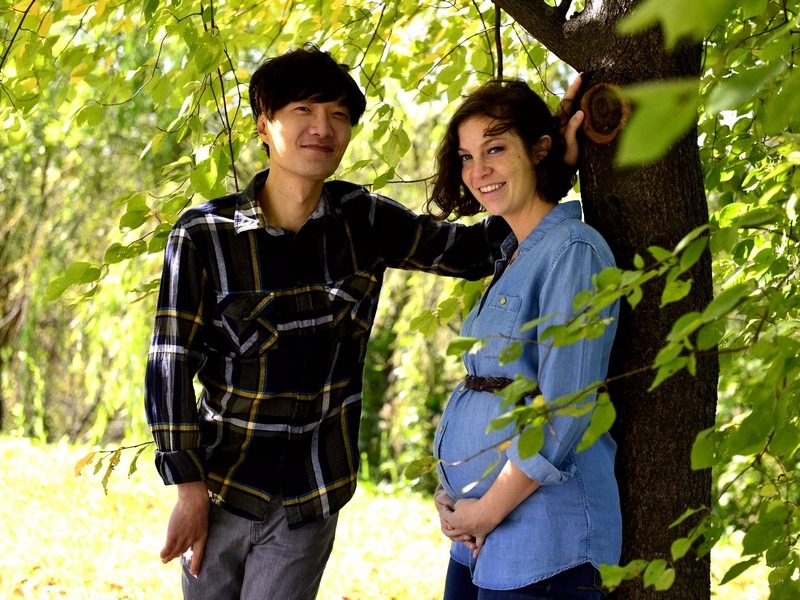
Where To Buy Maternity Clothes In Korea
To be honest, I never did find the maternity pants here in Korea. I noticed that many Korean women just opted to wear large shapeless dresses and leggings. And that’s definitely one option, but I preferred to wear some pants when I was out and about and working. Ultimately, I got some great pants online and then got some other things while I was home.
For some ideas if you can’t find things in Korea like me, ASOS.com has a great and very stylish maternity wear section and ships to Korea. A Pea In The Pod is another great option with a ton of items that ships to Korea. Another thing to look into, especially if you’ll be buying various products from multiple vendors back home, look into using a mail forwarding service.
We use FishisFast which can be used around the world. They receive all of your parcels, keep them in a locker until you’re ready, and then unpackage and repackage so your boxes are all together and you end up ultimately paying less in shipping fees. If you want to learn more about how their service works, you can read this FishisFast review I did.

Should I Tell My Korean Employer I Am Pregnant?
In general, Koreans seem to be under the impression that a pregnant woman cannot work. Coming from the west where women continue working and my entire life hearing the story of how my mother worked up until the day of my birth, I naturally found this insulting.
As a freelancer that takes odd jobs, I found it better not to mention that I was pregnant before I showed up for jobs. Once I got to the location and they saw my belly well of course management showed some hesitation but, I persisted and explained that westerners and Koreans have a different idea of what we can and can’t do during pregnancy and I wouldn’t have taken the job if I thought I couldn’t fulfill the expectations of my employers.
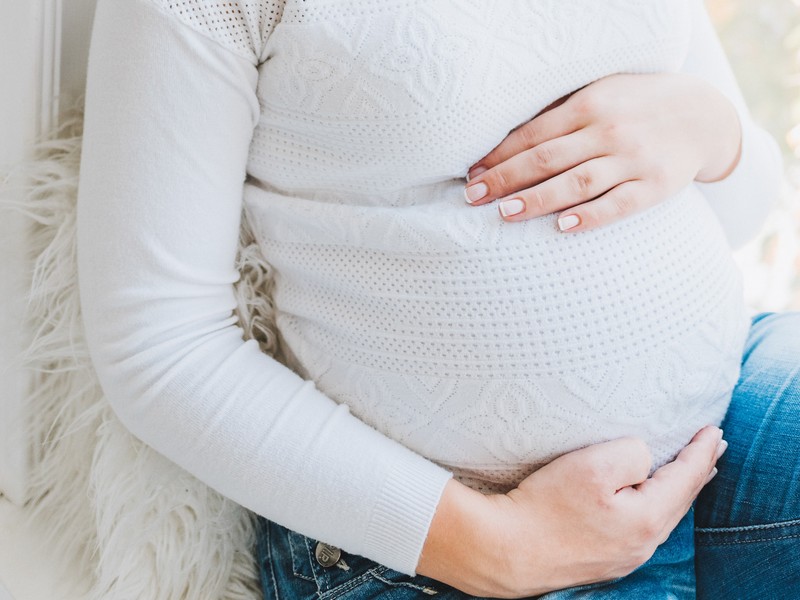
Of course maternity leave exists in the States but when I say that pregnant women don’t work in Korea, I mean from the start. Two of my pregnant Korean friends immediately took off from work as soon as they found out they were pregnant. This is not always the case, but it’s not uncommon either. My point, don’t be surprised when your Korean friends, family or co-workers express surprise or shock that you wish to continue working, if that is indeed what you wish to do.
Also on this note, though maternity leave exists under law here in Korea and you can get up to three months, you will most likely have to fight for it. Read up on your rights and know what they are going in to any meeting with your employer who will most likely not know what your rights are, due to women often quitting jobs when they become pregnant, or they will try to tell you you cannot get maternity leave, but you can. I would recommend knowing your rights concerning this and thinking about what you plan to do before you even bring up the topic of being pregnant at work. Be prepared.

What’s Your Baby’s Nickname?
A question that I found a bit weird was what my baby’s nickname was. We didn’t have one… so… fetus? bun in the oven? weird thing inside me that wakes me up at night? Koreans will give their bun in the oven a nickname or a taemyeong (태명). It’s a name that the Korean mums come up with to call their little thing while it’s inside. This is NOT the name they’ll ultimately give their child… though it can be as I’ve found out with some women. I guess the nickname just stuck.
For us, we never chose one and while we got some blank looks in response when we said that at times, we were fine not having a nickname as we were considering what the ultimate name would be.
You can change doctors many… many times.
There are hospitals and birthing centers all over this city, if you live in Seoul, and though they operate at generally the same level, though some will be more expensive than others, you need to find the right place for you. Don’t be worried about locking in a doctor early. You can switch as many times as you’d like and you can do it until quite late in the pregnancy.
We went from my gynecologist to a doctor in a big hospital and finally settled on a doctor in a smaller birthing center near our home with no issues switching. You may think that English services will be far better at the bigger hospitals and thus head towards those, but they will also be more expensive. Doctors at many of the birthing centers we visited spoke English just fine. They were shy at first, but who isn’t when speaking another language? Take the time to look around, compare places and find something and someone that is right for you.

Enforcing English During Doctors Visits
This goes mostly for the mixed couples in Korea. My husband, who is Korean, attended every appointment with me. The doctor we started with had been my gynecologist and spoke English and Korean and never missed a beat in switching between the two so that we were both in the loop. Ultimately we decided to go a different direction, and a closer one, later.
With the second two doctors that we had, I had to be quite strict about the doctor using English and Korean during appointments rather than relying on my husband to interpret. I didn’t want the doctors relying on him to tell me everything. I certainly wouldn’t be speaking Korean when I’m going through labor, I thought. I could already foresee that issue cropping up.
Doctor: (Korean) How have you been feeling? Any pain or anything you want to talk about first?
Me: (English) Do you speak English?
Doctor: (Korean) Yes, but only a little bit. Since your husband came, he can translate if you don’t understand, right?
Me: (English) I would prefer if you spoke English. My husband isn’t an interpreter, he is my husband. You can imagine the day that I’m giving birth, he isn’t going to want to be interpreting everything as well as taking in the birth.
Doctor: (Korean) Ah, yes. I’m not very good in English though so it may be better if I speak Korean and you can ask questions when you don’t understand something.
Me: (English) Let’s try everything in English and see how it goes.
Doctor: (English) Oh… okay.
Ultimately, she did a great job. I understood everything she said and she was happy that I had written down any questions I had as it was easier for her to read them and answer them for me. I had to use my strict teacher’s voice, but at the end I told her she did a great job and we’d love to keep her as our doctor. Don’t be scared to speak up and explain your needs. Of course Korean would be easier for the Korean doctors, but you will be going through months of a very new and different experience so find a doctor that is comfortable and willing to speak English. They exist.
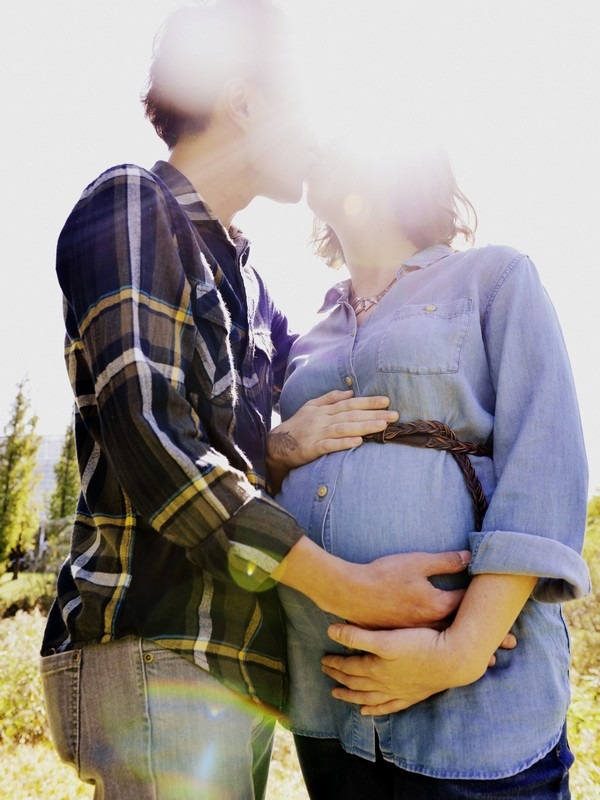
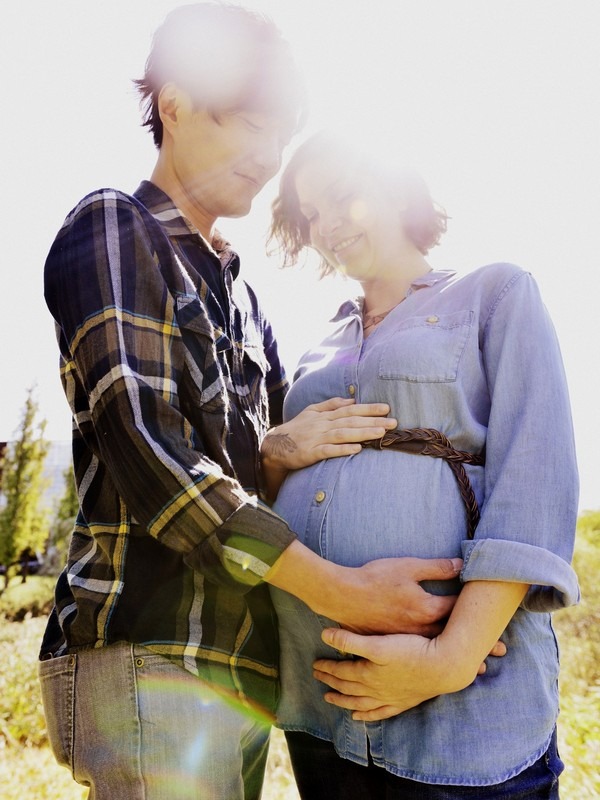
Korean Medical Terms & Jargon To Use When Pregnant
While many doctors have studied abroad and can speak English, their bedside manner might be highly lacking. Where doctors in the States understand that the general public is scared by hospital jargon and big medical terms, doctors in Korea who have studied abroad are not so aware of this and may not know how to dumb down information. Statements may be made without explanations. As this was my first time becoming pregnant, I had a lot of questions and even more when I realized the doctors were going through their information with no regard for the audience, aka me, and my lack of knowledge.
If you have a question, ask away and remember, like my grandmother says, no question is a dumb question. After the first two visits, my doctor was so used to me coming in with a list of questions that instead of me butting in to get them out, she started asking me if I had questions or needed more information on something specific. Our meetings were longer than the other couples we saw go in and out, but she made time for me to ask my questions and I am thankful that she became aware of my needs.

Ultrasounds Galore
The scheduled check-ups and tests are pretty similar to that of the US. The one thing that stands out during visits in Korea is the abundance of ultrasounds you’re granted. While my sister who was pregnant at the same time had just two ultrasounds and didn’t have anymore after her 20th week, in Korea you will have an ultrasound at just about every visit. Don’t fret about the cost, it’s just part of the deal.
The doctors here convinced me it would do no harm and why wouldn’t you want to see how the baby is progressing? If you don’t want to have as many ultrasounds though, you can always opt out. They also have apps that you can download onto your phone and they will upload all of the ultrasound videos and photos there so you have everything at hand when you want to show off your growing baby to your friends and family. To know what app your hospital or clinic is using, just ask the nurses at the desk.
Are you pregnant in Korea? Here are some more posts you might be interested in:
- A Helpful Guide For Foreigners Starting A Family In Korea
- What to Expect After Giving Birth in Korea
- What to Expect When You’re in Labor in Korea
And if you plan on staying in a post-natal hotel, check out:
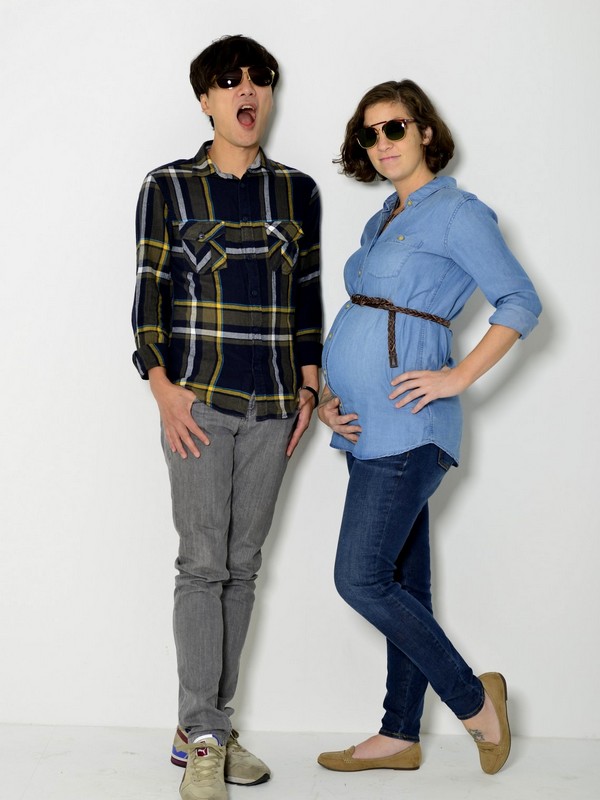
People Won’t Rub My Belly
Unlike the States where it’s almost a given that family, friends and even a random passerby will just rub your belly without invitation to do so, in Korea this will not happen. Coming from a place where people seem to be constantly rubbing a pregnant woman’s belly and all of the blogs written by pregnant women have at least one post complaining about this practice, not having anyone rubbing my belly felt strange.
My husband’s friends would stare and I would invite them to go ahead and touch my belly but each time they asked my husband first if it was really okay. He explained that where I come from, people do that so to me, it was fine. Were I in the States, I may have gotten tired of the constant touching. Living here though, I ended up looking for people to touch my belly. They definitely got a kick out of it, sometimes literally.
No Lamaze Classes
Some bigger hospitals or clinics that cater to a large foreign clientele may offer Lamaze classes or other preparation lessons, but in general and if you’re going the route that most Korean women go, there are no classes. As my second and third doctor put it, most here work under the assumption that as a woman, your body will know what to do to get you through the pregnancy and the birthing. It’s after the baby is born that you might need some help, but before that, no classes necessary. I should say, there are no specific birthing classes. There are prenatal yoga classes offered at community centers and birthing centers commonly though.

This seemed contradictory to me as I am a planner and since I’ve never gone through a birth before, aside from when I was born, I wanted as much information as I could get.
“But, I don’t even know how far apart my contractions should be before I come to the hospital,” I went on.
“Oh, if you feel three or four contractions at a steady pace within an hour just come in and I’ll check to see how dilated you are. If it’s still early, I’ll send you home,” the doctor explained.
“And then when would I come back?”
“We would go over more information then, but you should just listen to your body and come in when you think you need assistance and we will be here. Call when you are on the way and we will be ready for you. Try not to worry so much about exact timing.”
“What position or positions should I be prepared for? Can I stand, squat or sit depending on what is most comfortable for me? Should we practice?”
“You can just do whatever is most comfortable for you at the time. Sometimes the nurses will ask you to get into a specific position so that they can monitor the fetus, but other than that, we will just be there to assist you in however you feel comfortable.”

And that’s pretty much how that conversation went. Information is provided when it needs to be. Also, assumptions are that after you give birth you will either have your mother or mother-in-law come stay with you or you will stay with her for a time to learn what you need to learn and to be taken care of. If you don’t do this, many women in Korea stay in a postnatal hotel (산후조리원) of sorts. They may stay there from 2 weeks to a month to recuperate and to take classes on how to take care of their new baby. (I will provide more information on postnatal hotels in a later post.)
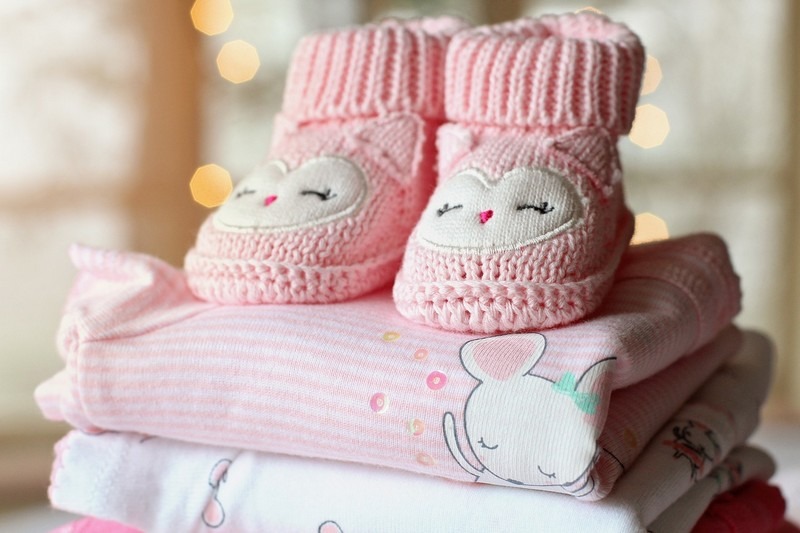
Korean Superstitions About Pregnancy
Dreams
It’s pretty standard to wait until the 12 week mark in the west to let people know the news of a pregnancy and once the news was out, I got a lot of questions concerning my dreams or what I had dreamed that told me I was pregnant. In Korea, traditionally a woman, sister, mother or mother-in-law will have a dream that indicates that someone is pregnant and the symbolism in the dream will indicate the gender of the child to be. These conception dreams are known as taemong (태몽). Here are other Korean superstitions and beliefs if you’re interested.
I did not have a dream, not that I can remember anyway but, my sister-in-law called before we knew we were pregnant and asked my husband if we were. She did not know that we had decided to try and he did not want to tell her that we were. The dream had told her that someone in our family was pregnant and she was sure of it. Just days later, we tested positive and lo and behold her dream had come true.
Some Dream Indicators:
For a boy: there will be a dream with a tiger, dragon, a fruit with a seed in it or a strong muscular animal.
For a girl: there will be a dream with a bird, snake, ring or a flower.
These are traditional symbolic indicators, but my sister-in-law dreamed of an outrageously large elephant and said because it was so large that was also an indicator.

Baby Showers
Baby showers aren’t common in Korea. I was told from some fellow pregnant friends who are Korean that traditionally there wasn’t much prep done for the baby because it could bring bad omens of sorts. Preparing was too forward.
That said, after we had a baby shower, those same friends said they wish Koreans did this because it was a fantastic way to prepare and bring friends together for the big event to come. Usually Koreans won’t celebrate the child in a big way until that child turns 100 days old or 1 year old and they do a dol ceremony.
Exercising While Pregnant
Another difference I found after becoming pregnant was that multiple people told me I should stop exercising. I’m not a vigorous exerciser but I enjoy jogging, yoga, biking, hiking and just generally being outside and being active. I listen to my body and from what I had read, maintaining some sort of exercise while pregnant is healthy. That’s a western attitude toward being pregnant, however.
Here, pre-natal yoga comes in the second trimester and walking in the third trimester, but before that you may hear people continuously tell you to sit down when all you want to do is get off your butt and take a walk. Even in my second trimester my doctor was telling me I should try to stop exercising and I insisted that I was fine. She was polite, but I know she would have preferred if I just wasn’t exercising at all. I didn’t look at it as exercising so much as the need for me to get some built up energy out of my system.
Get Ready For Baby
So you’re pregnant, or know someone that is expecting, CONGRATULATIONS! Want to get your baby room ready? Or maybe get the perfect gift for someone?
The Sun and The Moon Story
Definitely grab a copy of The Sun & The Moon Story. It’s a bilingual bedtime story that I wrote for my daughter. It’s a beautiful and calming story with artwork that melds western and eastern influences and presents them to small children to give them the best dreams. If you’re abroad, you can get The Sun & The Moon Story on Amazon. If you’re in Korea, you can get the book right here on The Soul of Seoul. You can learn more about The Sun & The Moon Story here.

The Thunderous Hello
If you’re raising a bilingual child or want to give them a bit of Korean and English, then check it out. I’m so excited to share these beautiful stories with amazing illustrations by a local artist with you. You can find out more about The Thunderous Hello here or if you’re in Korea, you can purchase The Thunderous Hello here. OR, if you’re abroad, you can purchase The Thunderous Hello here on Amazon.

Have you been pregnant in Korea? Have your experiences differed from mine? Let me know what you experienced concerning these different topics.
Did you like this post? Pin It!
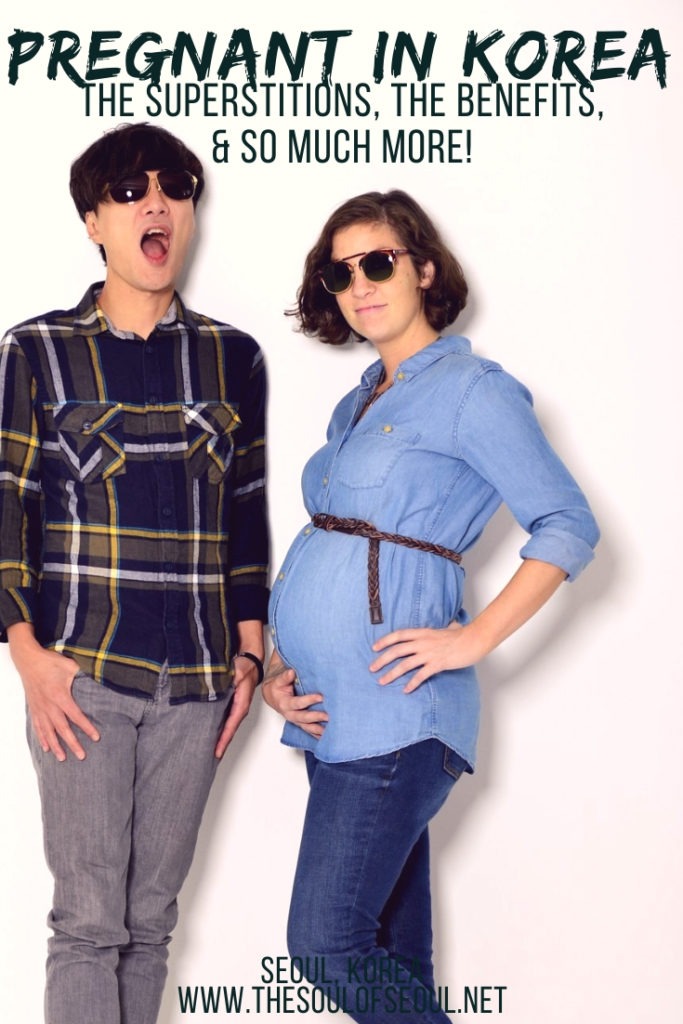
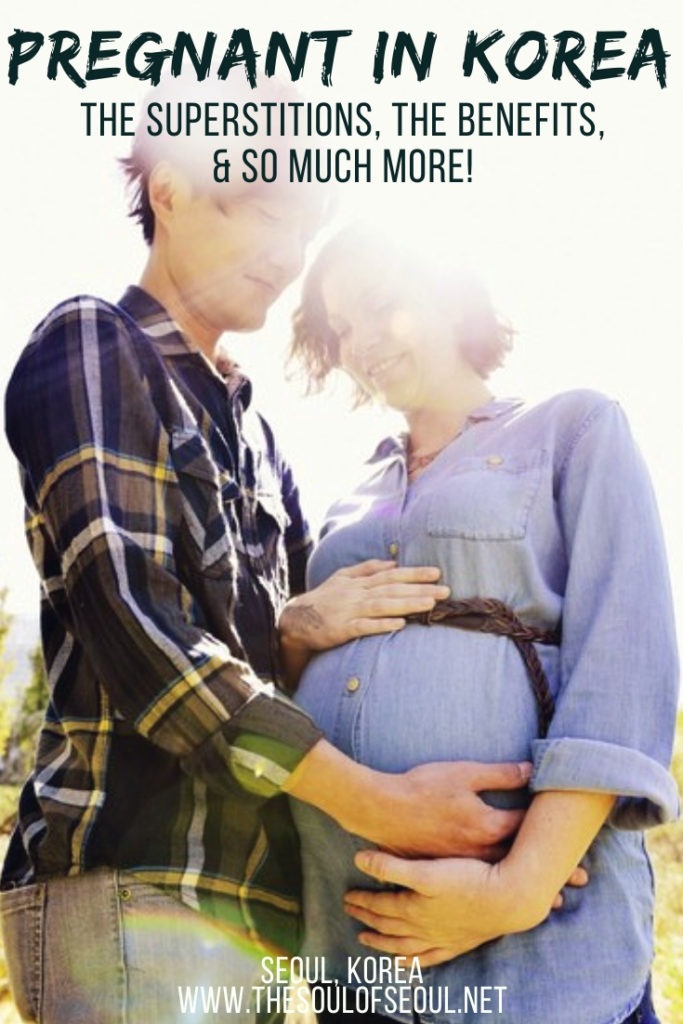


6 Comments
Tracy
I enjoyed your article so much as I am new and expecting my baby in Seoul. My hubby and I are from Hong Kong and expecting a baby in Seoul is very new to us. We need to search for many information, but sometimes fail to get what we want, especially we wanna find a doctor who can speak simple and basic English… LOL Thanks for sharing your information. We are living in Mapo-gu too. Would you mind sharing your birthing center and post-natal hotel for our reference? I am going to have a 2nd checking today in Seoul, hopefully the doctor can speak English!
Michelle
We are in the US but DH is from Korea. I had no idea about the dream thing till I found this article a few minutes ago. I dreamed of a child right before finding out I was pregnant. When we told DH’s mom we were having a baby she told us she had dreamed we were having a baby a couple weeks prior. When I was around 12 weeks pregnant I dreamed of a gold ring with an amethyst on it. Thought it meant I’d have HER in February instead of March. Evidently it had another meaning. So cool!
Monti
My main concern is vaccines! Are the same vaccines given in Korea that are given on America for mother and newborn?
Hallie
Almost all are the same. There were a couple that I had that I remember being surprised by and had to look up. Maybe the Japanese encephalitis was one I think. But these days, they’re definitely giving more vaccines than when I was growing up. They give a vaccine for chicken pox now… when I was a kid, we all just got it! Other than those, they were all pretty standard, MMR, etc.
Amandine
Hey there, I’m expecting in Korea too 🙂 But my due date will be in May so still quite a long way to go!
I really enjoyed reading your articles, especially since you started talking about your pregnancy just before I discovered that I was pregnant / a nice way to have insights on my future 😉
We struggled as well for hospitals, being really disappointed when discovering that famous and big hospitals (like Cha Hospital) offer very poor service in regards to english (which is already not my mother tongue). But finally we found our way, and I also decided to try to go ahead with a post-natal care center, that exists only in Korea as far as I know, as I want to be able to enjoy this great experience.
I hope you will have (or had) a wonderful experience in welcoming your new child.
Hallie
Congratulations! I just posted the Part 2 to this post on some other things I noticed which are a bit different about becoming pregnant here. I’m actually due this week and probably a bit after that I’ll post about my experience at the post-natal care center, so keep checking back for more information. I hope you find it helpful. ^^